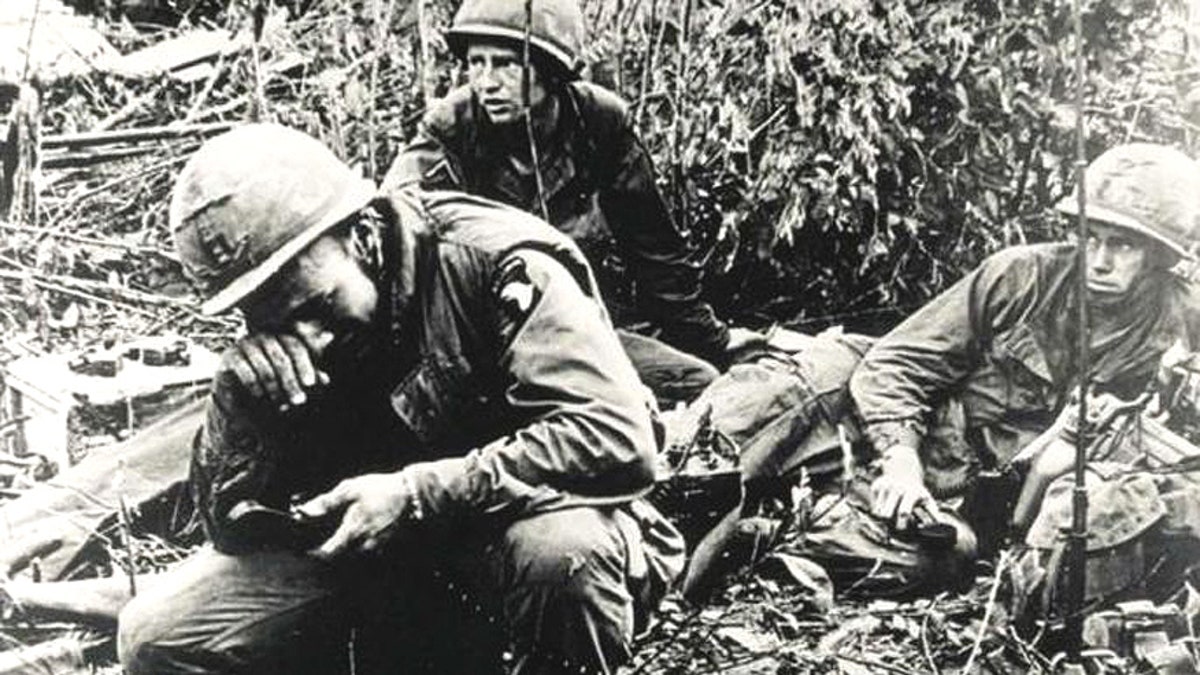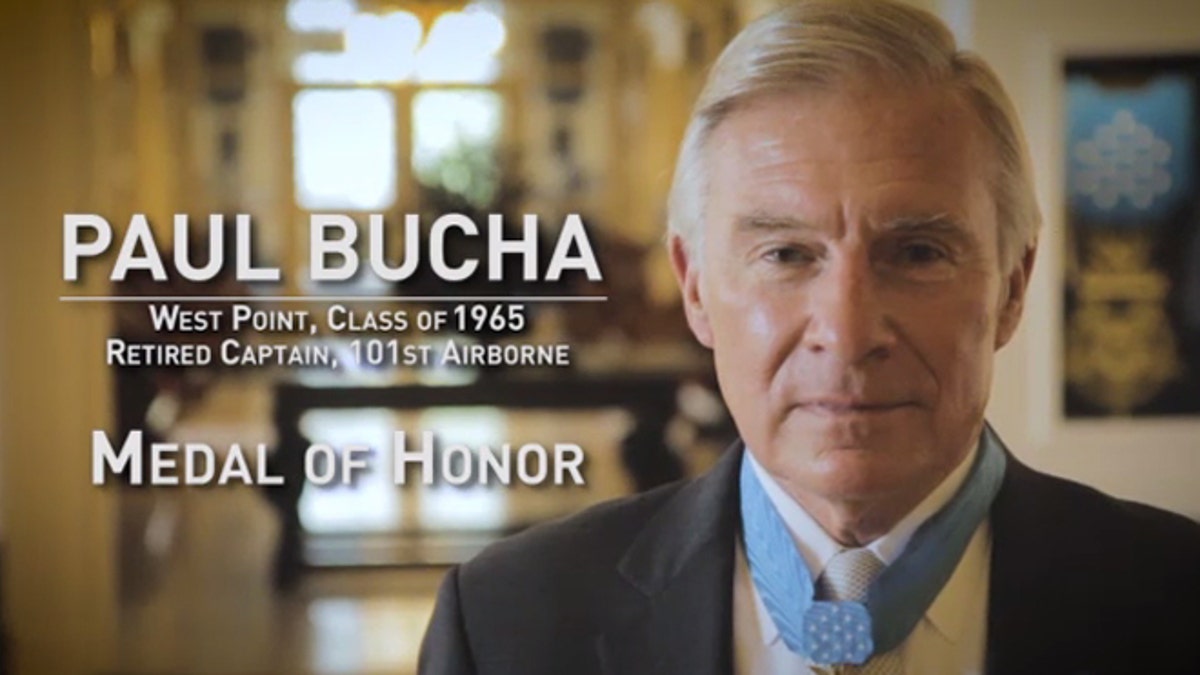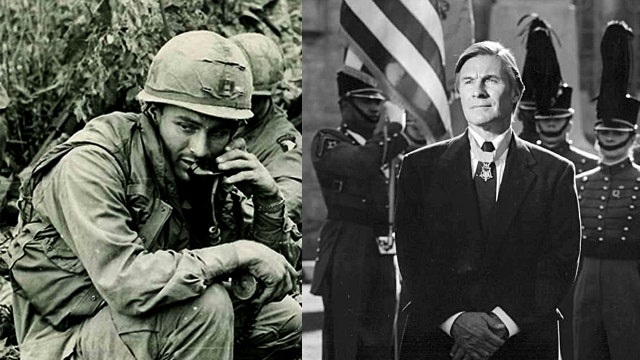Army Capt. Paul “Buddy” Bucha faked out the enemy while leading a motley crew in Vietnam.
The Medal of Honor recipient was hailed as a hero after he made North Vietnamese fighters believe his 187th Infantry Regiment was much bigger than it really was. The combination of bravery and cunning helped him earn the nation's highest military honor, an award bestowed upon him by the president.
In 1967, Bucha — who graduated from West Point and earned an MBA at Stanford — arrived in Vietnam and was given a squad filled “with the rejects of all the other units,” including writers, intellectuals and men who had served time in military prison, he said.
“We were called the 'clerks and the jerks,'" he recalled. "We were a few smart guys and a lot of badasses … considered the losers of all losers.”
But as a company commander new to Vietnam, "I, too, was a loser,” Bucha recalled fondly years later. “So we were sort of meant for each other.”
"They ended up being a very disciplined, proud, and frightening force," he said.
On March 16, 1968, soon after the Tet Offensive, Bucha's 89-man company took part in a counterattack designed to push the North Vietnamese away from Saigon.
A helicopter dropped his team into an enemy stronghold, and for two days they destroyed camps and fortifications.
On March 18, after they found a clearing and resupplied, Bucha directed his troops to push into the jungle, where it was getting dark.
A soldier spotted a group of Vietnamese water carriers and women, which usually indicated an established enemy location. Bucha gave him permission to fire a few rounds to test what was out there.
"The entire mountain returned fire…. I said, 'Oh, my God,'" Bucha recalled.
An entire North Vietnamese Army battalion hit Bucha's unit with heavy machine guns, rocket-propelled grenades and claymore mines, pinning down the lead group of 12 Americans.
The Viet Cong had a machine gunner at ground level and a fighter with an automatic weapon up in a tree, and "I figured the easiest thing to do was to just blow the tree up,” Bucha said.
"I just … started throwing hand grenades," he said. "When the weapons stopped, I looked around and no one was firing at me. There was a calm, and I’m not sure if the calm was in my mind or if it was actual calm."
Bucha ordered his troops to withdraw to a more defensible position, and for the next several hours they were in a fierce firefight. He feared his group would be overrun, and a dark thought crept into his mind: "What a hellhole to die in."

(Earl Van Alstine/U.S. Army)
He decided to give every soldier a number, and when he called out a number over the radio, the soldier who’d been assigned that number would throw grenades from his position, giving the illusion of a much bigger force.
An Australian pilot came over the radio and offered to drop two 750-pound bombs, and Bucha asked him to level a couple of nearby hills. He did, and the bombs rocked the soldiers.
"We bounced … and when I turned around, my men were all laughing, and I started laughing, and we realized we're not in this alone," he said. "[I thought] we might make it."
A U.S. helicopter finally arrived, and Bucha directed the evacuation of the wounded. When the enemy withdrew the next morning, he learned that his team had killed more than 150 North Vietnamese.
But 10 Americans in his platoon had also died.
When he learned he would receive the Medal of Honor, Bucha told a sergeant, "I don't deserve it."
But the sergeant convinced him he would wear the medal on behalf of his men, and on May 14, 1970, Bucha accepted the award from President Richard Nixon.

Still, Bucha said, "Every day of my life, I think back to what I could have done better that night … to bring those 10 [Americans] home."
Today, Bucha makes speeches to military groups, including at his alma mater, West Point.
"I try to go somewhere one day a week, 52 times a year, to where troops are.… When I see them and listen to them, I come away grateful … for the privilege to be among them," he said.
American Legends – Stories of soldiers who responded to a difficult conflict situation, and did everything they could to defeat the enemy and get their brothers home.






















